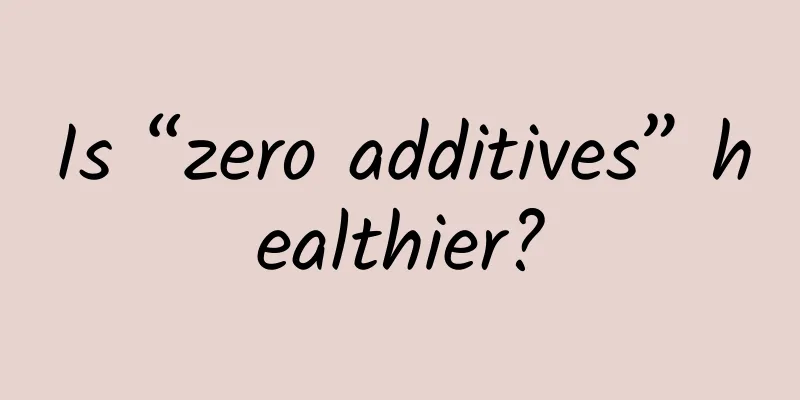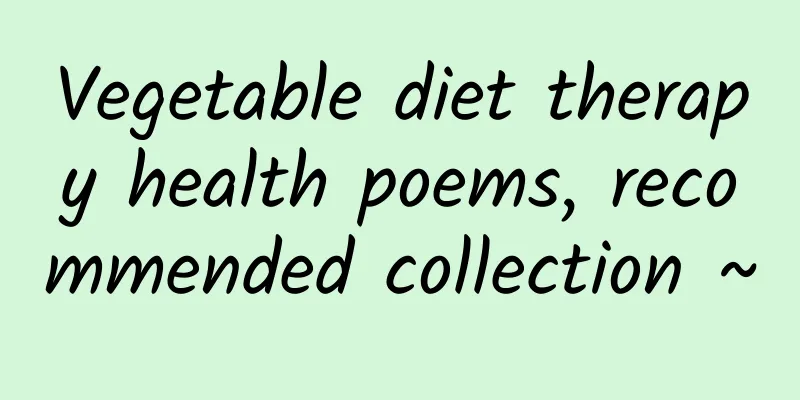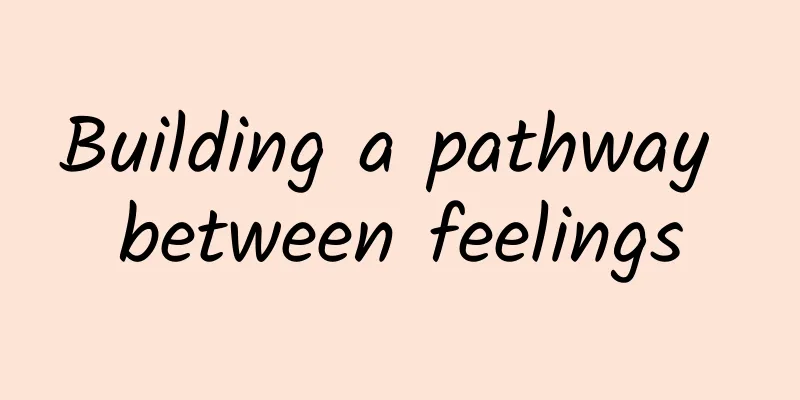Is “zero additives” healthier?

|
Food is the most important thing for people. For students who are growing up, food safety and health are of paramount importance. With the improvement of living standards, consumers have higher and higher standards for "eating". However, in recent years, the problem of excessive content of food additives has emerged in an endless stream, and many people have reached the point of talking about additives. Once a food safety problem occurs, additives often become the "scapegoat". As a result, more and more foods and drinks marked with "zero additives" come into view. For a long time, many consumers believe that the more original and natural the food is, the safer and healthier it is. Therefore, more and more businesses are keen to promote "zero additives" and vigorously promote their own "original" foods. Many bad food companies also use "zero additives" as a selling point to increase product prices. However, is "zero additives" really healthier? Are those stigmatized food additives really useless? What is the truth behind "sugar-free", "oil-free", "0 fat" and "0 calories"? Let's find out together! Food additives——“the soul of the modern food industry” What are food additives? As the name suggests, they refer to chemical synthetic substances or natural substances added to food. In fact, food additives are varied, and there are many types of them with different functions. They are usually used to improve food quality and color, aroma, and taste, as well as to meet the needs of preservation and processing technology. Careful students should find that on the packaging bags of various foods, there are "ingredients lists" marked with various uncommon chemical terms, many of which are food additives. Let's take a closer look. The most common food additive should be preservatives, which are used to prevent food from spoiling. We all know that most foods will go bad if left under natural conditions for a period of time. This is because microorganisms such as bacteria in food are constantly multiplying, and preservatives can inhibit the reproduction of microorganisms, thereby extending the shelf life of food. Sodium benzoate, potassium sorbate, etc., which are commonly seen on the ingredient list of food packaging bags, are all preservatives. There is also a category of food additives that we call colorants, which are specifically used to change the color of food and make it easier for us to have an appetite. For example, adding colorants to some fruit juice drinks can make the originally dull juice more vivid. Carmine, lemon yellow, etc. are all colorants. Common food additives also include leavening agents used to make bread, steamed buns, etc., which can produce carbon dioxide during the processing process, so that the food has a loose and porous structure, so that it will feel fluffy when eaten, greatly enhancing the taste. In fact, there are far more types of additives than these, including sweeteners that enhance sweetness, nutritional enhancers used to add nutrients, and spices used to give food various flavors, etc. It is precisely because of the addition of these food additives that the food becomes more colorful, fragrant and delicious. An expert said: "Food additives are one of the most actively researched, developed and improved parts of the food industry. Food additives are the product of the development of the modern food industry. Without food additives, there would be no modern food industry. Therefore, food additives are also known as the 'soul of the modern food industry'." Food Additives ♦ Illegal Additives Indeed, food additives make our food more delicious and easier to preserve. However, health issues are still our biggest concern: will so many additives cause harm to our bodies? Are so-called "zero-additive" foods healthier? Speaking of "zero additives", some students may wonder if they can stay away from food additives and achieve "zero additives" when cooking at home? The answer is actually no. There are also additives in the various seasonings we use for cooking. For example, soy sauce contains caramel color, potassium sorbate, sodium benzoate and other food additives. In addition, anti-caking agents added to salt and antioxidants added to cooking oil are all food additives. This is why cooking oil has no strange smell after being stored for a long time and salt is not easy to clump in summer. So back to our previous question, will various additives cause harm to our bodies? In fact, the country has strict and detailed standards for the scope and dosage of food additives. The food additives allowed for use have undergone scientific and strict safety tests and evaluations, and there are relevant laws to regulate the behavior of manufacturers. As long as the usage meets the standards, it will not cause harm to the human body. On the contrary, sometimes the right amount of food additives can reduce and eliminate harmful substances produced during the food production process. For example, when pickling food, adding an appropriate amount of ascorbic acid, which is commonly known as vitamin C, can effectively reduce the content of carcinogenic nitrite. Another example is the air-dried pickled meat, fermented food, and soy products that many people love to eat. During the production process, they are prone to produce botulinum toxin that can release highly toxic substances. Only a very small amount can paralyze the nerves, causing respiratory failure and even death. Therefore, in the production process of this type of food, there are professional technicians responsible for controlling the usage and dosage of additives to reduce the production of harmful substances. During the production process and before entering the market, the products will also be strictly tested for quality according to national standards, so we can rest assured about the content of additives. However, some unscrupulous merchants do not abide by the law and use illegal additives as food additives without authorization: in the well-known melamine "toxic milk powder", the addition of "clenbuterol" to animal feed, the discovery of "Sudan Red" in foods such as red duck eggs, etc., merchants are tempted by profit and thus embark on the road of crime. The country has always had zero tolerance for the use of illegal additives, and unscrupulous merchants have received the punishment they deserve. Nowadays, there are many foods in supermarkets that are labeled "zero additives", but experts say: "The word 'zero additives' does not mean that it is healthier or safer." Even if there are really no additives, such as a lack of preservatives in food, it will be more likely to spoil, thus posing a risk to people's health. For some foods that cannot be eaten in one go, if their own ingredients cannot inhibit the growth of microorganisms, the necessary measure to ensure their safety is to add preservatives. Therefore, we should try to change our inherent ideas that "zero additives" is not necessarily the best. The truth about “sugar-free”, “oil-free”, “0 fat” and “0 calories” It is worth mentioning that the "sugar-free", "oil-free", "0 fat" and "0 calories" we often say are not their literal meanings. The only beverage that can be called "zero sugar, zero calories and zero fat" in a strict sense is boiled water. "Sugar-free" mostly refers to the absence of sucrose, but it can be replaced by other sweet substances such as xylitol. According to my country's food standards, when the sugar content in a food is lower than a certain value, it can be considered sugar-free. Therefore, "sugar-free" foods are not completely sugar-free. Even if there is no sucrose, if the food itself contains starch, it will cause blood sugar to rise. Patients with diabetes or high blood sugar should carefully distinguish. In addition, the so-called "0 fat" food may contain a lot of carbohydrates even if it does not contain fat. Such food will still be converted into fat after being absorbed by the human body. In fact, calories (energy), sugar, fat, etc. are all important parts of maintaining human functions. For a healthy life, moderate intake is extremely important. Blindly pursuing "zero sugar, zero calories and zero fat" for weight loss will not only fail to achieve a good weight loss effect, but will affect our health. Balanced Diet Pagoda for Chinese Residents The sugar family White sugar, as a common sugar in our daily life, is a kind of sucrose, which is also what we usually refer to as "sugar". But the family of sugars is far more than just sucrose. Since sugars are composed of carbon, hydrogen, and oxygen elements, the chemical formula is similar to the combination of "carbon" and "water", so sugars are also called "carbohydrates" that we often say. Sugar plays an important role in the life process and is the main source of energy for all living things to maintain their life activities. Starch and cellulose are sugars commonly found in plants and are the nutrient reserves in plants. Most food crops such as rice, wheat, corn, sorghum, etc. are rich in starch. In addition, fruits are rich in fructose and glucose. An important component of each of our DNA is also a sugar called deoxyribose. It can be seen that sugars are widely present in our lives. |
<<: Winter dressing secrets revealed: Turtleneck sweaters may cause health problems
>>: World Diabetes Day - Know the risks, know how to respond
Recommend
What are the early symptoms of breast cancer?
Breast cancer can cause great damage to women'...
Why is menstruation called aunt?
As we all know, female friends have their periods...
What should I do if I have sex less than three months into my pregnancy?
Under normal circumstances, you should not have s...
Standard weight for girls 155cm tall
Contemporary women's fashion pursues a perfec...
Dietary considerations for breast hyperplasia
In daily diet, when it comes to breast hyperplasi...
Can I get pregnant one day after my period?
For women, there is a safe period and a dangerous...
What are the benefits of eating fern root powder? What is fern root powder made of?
"Fern root powder" is a vermicelli food...
Why is millet porridge white in color? Can you eat millet porridge if it is cooked white?
We all know that millet porridge is a popular nut...
How long does it take to produce milk after giving birth?
After giving birth, most women want their childre...
How many years after ectopic pregnancy can you have a baby
If a female friend has symptoms of ectopic pregna...
How many days will the stomach hurt after abortion?
Many people think that painless abortion will not...
Disease prevention tips in November | The cold wind made me realize that it’s okay to live without love, but it’s really not okay to live without long underwear
Temperature turns cold Risk of infectious disease...
Why do women's private parts have an odor?
The odor of female private parts is a headache fo...
Use Chinese herbal incense to disinfect and prevent virus invasion!
The Chinese medicine shop was filled with light s...
Steps for removing the gauze after a biopsy
Puncture biopsy is a common diagnostic and treatm...









